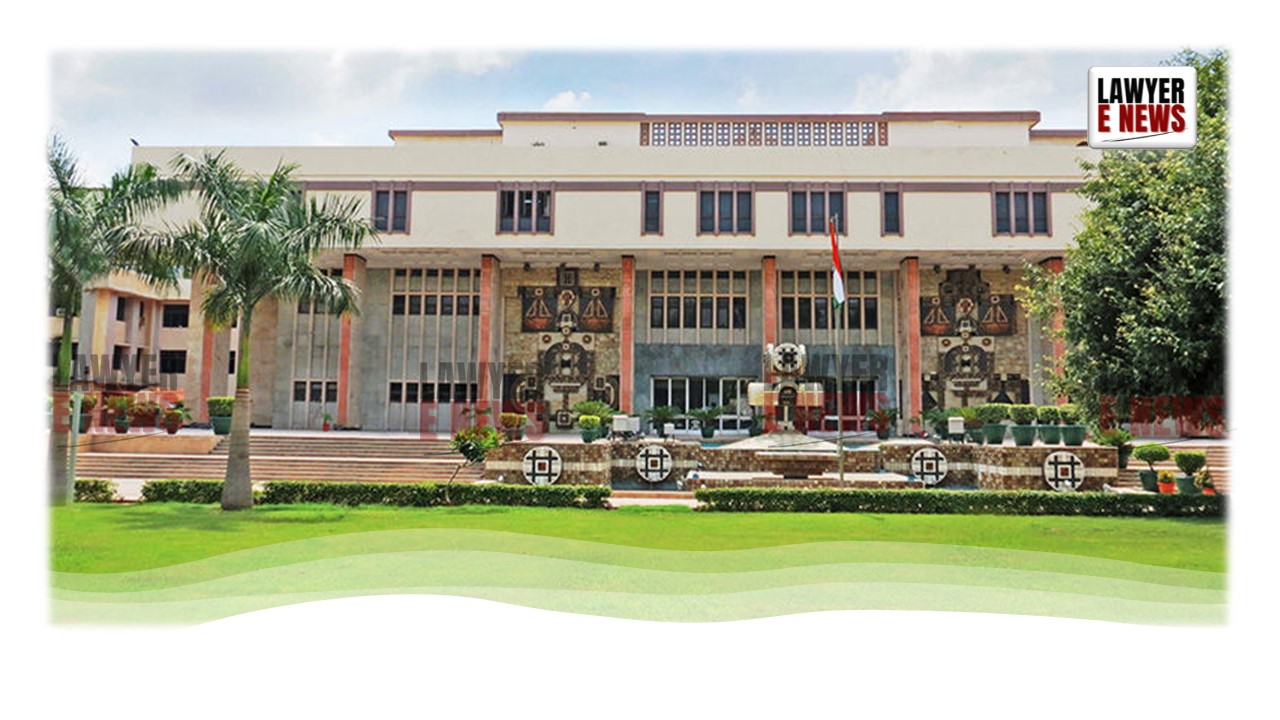-
by Admin
15 February 2026 5:35 AM



In a significant ruling delivered on October 25, 2024, Justice Navin Chawla of the Delhi High Court addressed a long-standing property dispute centered around the estate of Smt. Abnash Kaur, specifically involving her 1973 registered will. The court held that the plaintiff, as a co-owner, is entitled to a preliminary decree for partition of the suit property, located at 3 South End Road, New Delhi, subject to payment of his proportional share of mortgage redemption costs. The judgment clarified issues around partial partition, subrogation rights, and the legal distinction between tenants-in-common and joint tenants, impacting property succession and partition litigation in India.
The case revolved around the estate of the late Smt. Abnash Kaur, who passed away in 1976, leaving a registered will bequeathing her assets, including property and shares, to six beneficiaries, each holding a 1/6th share. The will appointed her brother, Ajit Singh, as executor and administrator of the estate. Over time, disputes arose among the beneficiaries regarding the administration and partition of the estate, particularly concerning the suit property in New Delhi, which was occupied by one of the beneficiaries, Adarsh Kaur Gill, under a lease agreement.
Ajit Singh, in his capacity as executor, initially sought a partition of the estate, claiming that assets from the estate were being improperly used by Adarsh Kaur Gill and her associates. The litigation also involved questions regarding a mortgage on the suit property, which was redeemed by Adarsh Kaur Gill, leading her to claim subrogation rights against the other beneficiaries.
The primary issue before the court was whether a suit for partial partition could be maintained. Generally, Indian law disfavors partial partition, especially in cases involving joint family properties. However, in this instance, the court noted that the suit property was self-acquired by Smt. Abnash Kaur and not held as a Hindu Undivided Family (HUF) or coparcenary asset. The court cited Kenchegowda v. Siddegowda and other precedents, affirming that the rule against partial partition does not apply to properties held by tenants-in-common, as opposed to joint family properties.
"The rule of bar against partial partition would not be applicable to the facts of this case," Justice Chawla stated, emphasizing that where properties are held as tenants-in-common, a partial partition is legally permissible.
The case also involved the right of Adarsh Kaur Gill, one of the beneficiaries, who had redeemed the mortgage on the suit property and claimed rights akin to a mortgagee under subrogation. The court clarified that under Section 92 of the Transfer of Property Act, a redeeming co-mortgagor has the right to seek contribution from other co-mortgagors but does not gain the status of a mortgagee. Instead, she holds the right to retain possession until the other co-owners contribute their share towards the mortgage redemption cost.
Citing the Supreme Court’s ruling in Krishna Pillai Rajasekharan Nair v. Padmanabha Pillai, Justice Chawla affirmed that a co-mortgagor who redeems a mortgage can resist partition until reimbursed by the other co-owners, but cannot claim exclusive title over the property.
"One of the co-mortgagors, by redeeming the mortgage in its entirety, cannot claim a right higher than what he otherwise had," the judgment asserted.
The plaintiff argued that the lease deed executed in 1958 in favor of Adarsh Kaur Gill was a sham transaction intended to shield the property from claims by step-sons of Smt. Abnash Kaur. However, the court rejected this contention, observing that the will itself acknowledged the lease, thereby binding the beneficiaries to its terms.
The court noted that as the plaintiff was relying on the will to claim his share in the estate, he could not selectively dispute parts of the document.
"The plaintiff, who is claiming his right under the Will of late Smt. Abnash Kaur, is bound by the terms thereof, including the acknowledgment of the Lease by late Smt. Abnash Kaur," the judgment noted.
The defendants contended that the suit was barred by limitation, arguing that the plaintiff had failed to seek redemption of the mortgage within the prescribed period. However, the court ruled that the suit was for partition, not redemption, and hence was governed by Article 65 of the Limitation Act, which allows a co-owner to seek partition without a fixed limitation period, as long as the right to partition has not been expressly denied.
"Since partition is an incident attached to the property, there is always a running cause of action for seeking partition by one of the co-sharers," Justice Chawla noted, rejecting the limitation defense.
Due to the deaths of several original parties, the court recalculated the shares in the property. The plaintiff, Gurnir Singh Gill, as the executor of Ajit Singh’s will, holds his share along with his mother’s, amounting to a 33.34% share in the property. The remaining shares were distributed among the other beneficiaries and legal heirs, with 16.67% allocated to each of the surviving defendants and the legatees under Ajit Singh's will.
In its final order, the court granted a preliminary decree of partition, subject to the plaintiff and other co-owners reimbursing the defendant (Adarsh Kaur Gill) for the mortgage redemption amount, including applicable interest. The decree outlined each party’s share in the property, while reserving the option for a final division or sale of the property at a later stage if a mutual partition arrangement is not feasible.
Date of Decision: October 25, 2024
